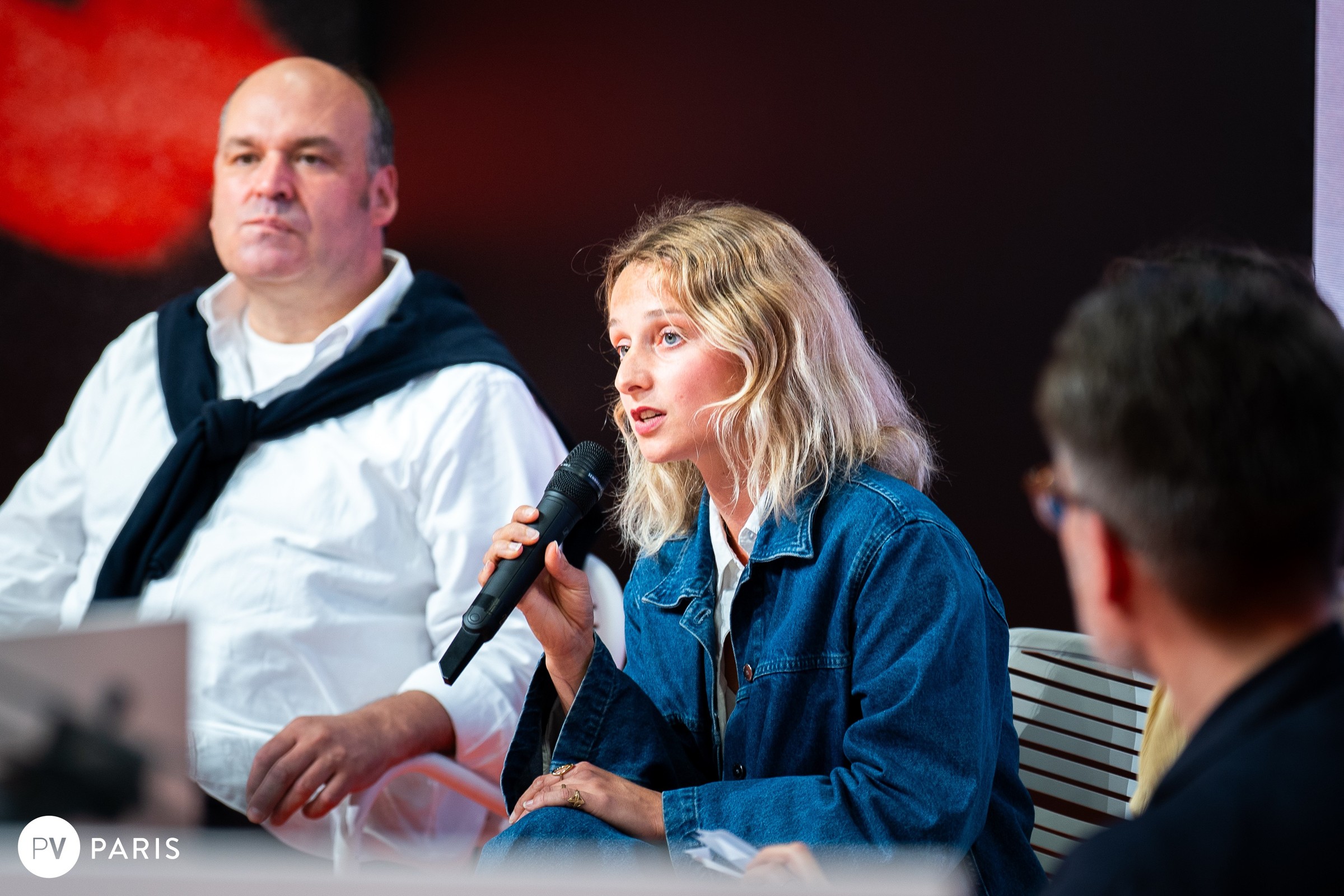Circularity in action: key takeaways from Texworld & Première Vision 2025

Key Takeaways
Material health: the non-negotiable foundation
Circularity is not a one-size-fits-all solution; every design decision involves trade-offs. However, material health remains a non-negotiable priority. As emphasised by Lucie Ladigue during the panel at Première Vision with Lutz Walter and Andreas Dorner, moderated by Elsa May, material health must be considered early, especially when integrating recycled content. Circulating hazardous chemicals risks contaminating future material streams, which represents the biggest challenge the Institute continues to address.
Circular success stories
At Texworld, Lucie moderated a lively conversation with Silvio Botto (Botto Giuseppe), Stéphane Popescu (RE&UP), and Andreas Dorner (Dorlet), highlighting practical pathways and real-world examples of circularity in action.
Highlights from the panel:
RE&UP’s next-gen recycled cotton and polyester show how upstream and downstream circularity can be scalable and affordable.
Dorlet’s reusable, removable, and recyclable diabolo enables easy design for disassembly and could revolutionise the trim industry.
Botto Giuseppe’s high-quality natural fibres demonstrates responsible sourcing,integrating bothanimal welfare and regenerative practices.
Can circularity go mainstream if regulations are simplified?
Against the backdrop of a shifting regulatory landscape, where legislators are revisiting and sometimes revising previously adopted texts, an important question emerged: Can circularity truly go mainstream if regulations are simplified?
The response from the panel was one of cautious optimism, paired with a clear call to action. The recent adoption of the revised Waste Framework Directive signals that both the European Commission and Parliament remain committed to the Green Deal’s objectives, aiming to reduce the bloc’s overall environmental impact.
The textile sector is now anticipating the forthcoming and much-awaited Eco-Design Regulation and the introduction of the Digital Product Passport (DPP), expected to be adopted for textiles in 2027. These measures will bring a host of new requirements, especially for those seeking to adopt circular practices. Early adaptation and integration of these principles are essential to ensure readiness and compliance.
In this context, Cradle to Cradle Certified® plays a vital role. It offers a trusted framework that guides companies through the complexities of circularity, supporting preparation for future regulatory developments and ensuring that circular products meet the highest standards for data availability, transparency, and traceability.
The bottom line
Material health is the foundation of effective circularity, and innovation across the sector is thriving. Yet, collaboration and proactive adaptation to upcoming regulations are essential for scaling circular solutions. As the industry prepares for new requirements like the Eco-Design Regulation and Digital Product Passport, certifications such as Cradle to Cradle Certified® will be key to navigating those changes and ensuring products are future-proof.
With the right regulatory push, industry commitment, and collaborative spirit, circularity can move from theory to reality, creating a textile sector that is not only sustainable, but also resilient, innovative, and impactful.